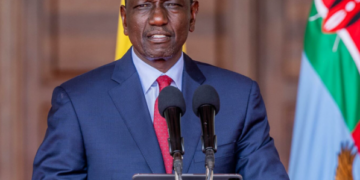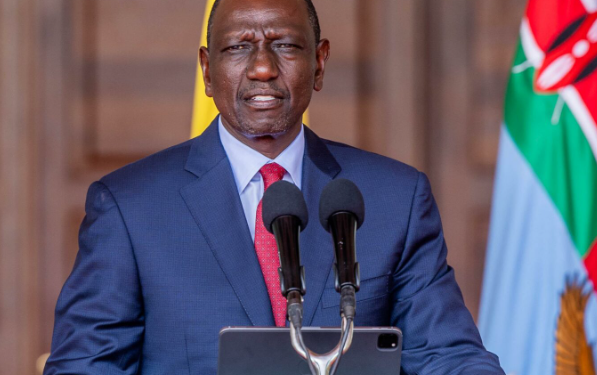By Ebi Kesiena
The International Monetary Fund (IMF) on Monday cautioned the Kenyan government against pursuing a substantial loan deal with the United Arab Emirates (UAE), warning that it could lead to significant debt challenges.
According to a report by Business Daily, the IMF expressed concern over the high interest rates tied to the UAE loan, which could burden Kenyan taxpayers and complicate debt repayment.
Heritage Times HT recalls that in September 2024, the administration of President William Ruto began negotiations to secure a loan of over KSh 193.5 billion from the UAE to fund the fiscal year 2024/25 budget.
The loan terms include a seven-year repayment period at an interest rate of 8.25% per annum.
During the World Bank and IMF Annual Meeting, IMF Director for Africa, Abebe Selassie, emphasized that countries must be cautious about the weighted average cost of their loans.
“If countries are borrowing at 8%, 9%, or even 10% for their debt portfolio, it is a recipe for debt challenges, as these rates are often higher than the country’s growth rate,” Selassie stated.
He advised countries to consider concessional financing from multilateral lenders like the World Bank and IMF to maintain a healthier cost of debt repayment.
Kenya’s decision to seek funding from the UAE follows disbursement delays from the IMF earlier in 2024.
Meanwhile, a source familiar with the matter revealed that the deal with the UAE is nearly finalized, as the country aims to diversify its financing options to support the budget. The move comes amid a growing budget deficit exacerbated by the withdrawal of the Finance Bill 2024, which increased the shortfall by KSh 200 billion.
The IMF argues that while loans from commercial sources like the UAE might provide immediate relief, they come with long-term financial risks due to their higher interest rates. The organization encourages countries like Kenya to prioritize concessional funding, which offers more favorable terms and lower overall costs.
As Kenya continues its negotiations with the UAE, the IMF’s warning serves as a reminder of the importance of sustainable debt management to avoid future economic strains.




































